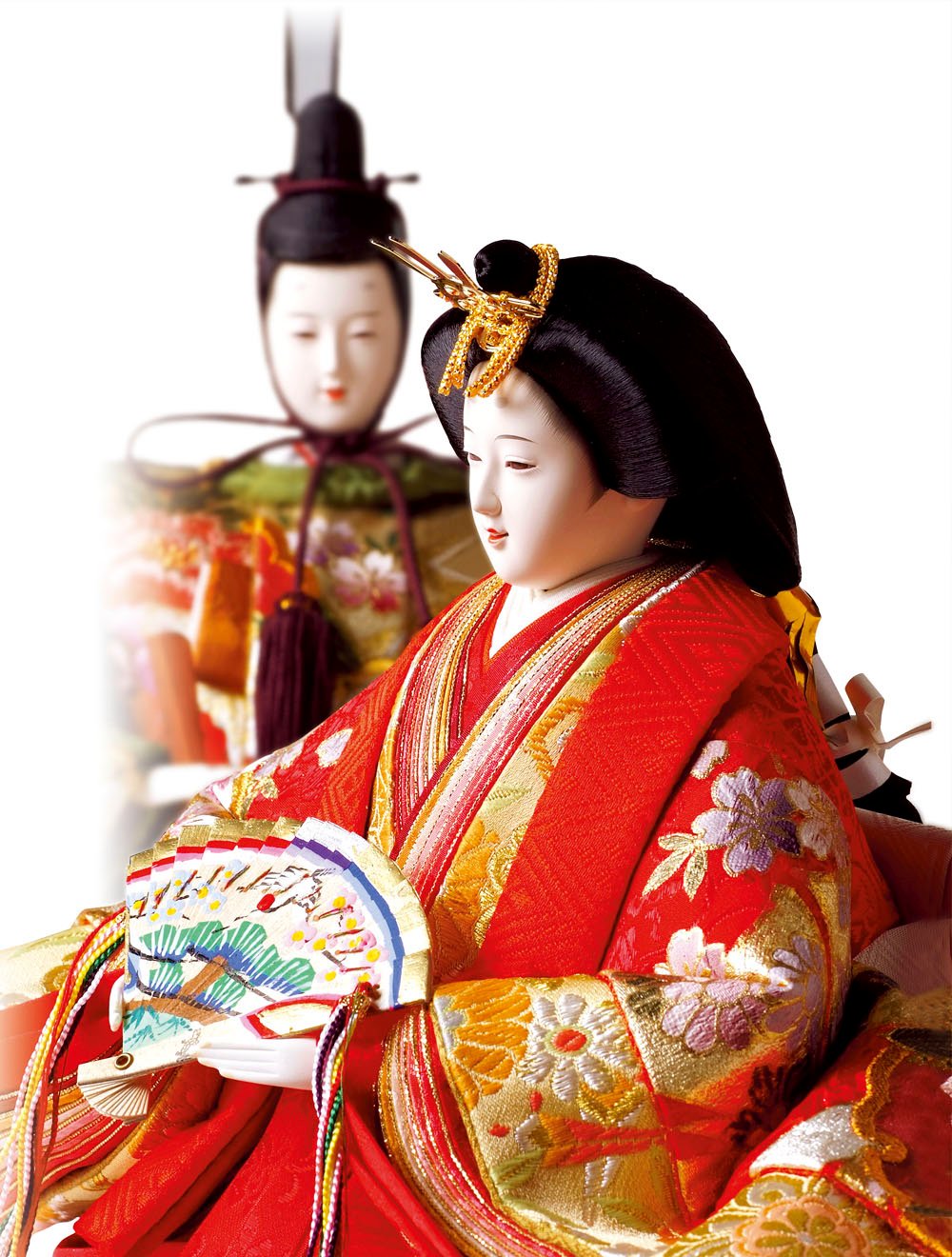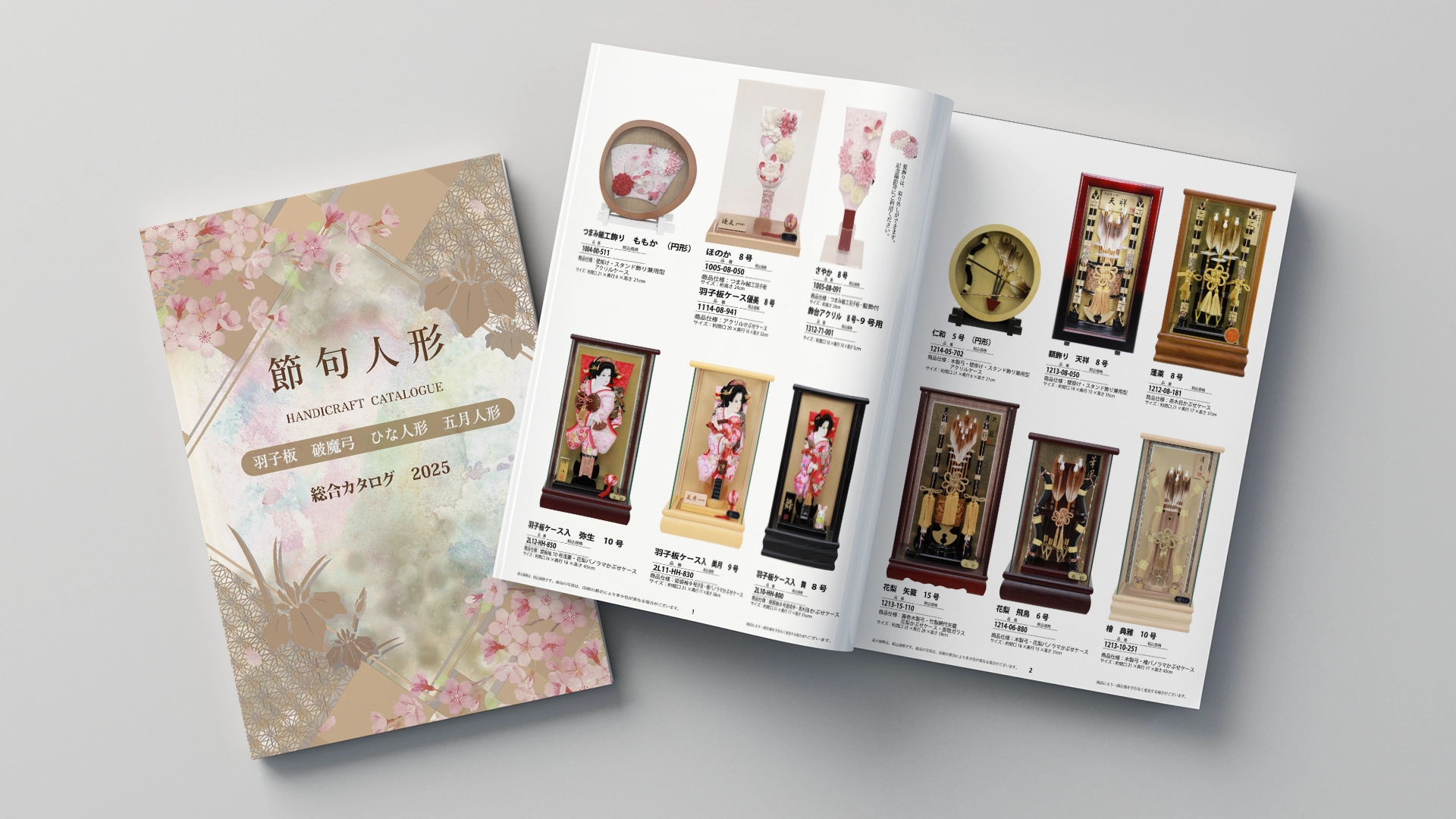Japan is a treasure trove of unique handmade crafts, each piece reflecting the rich culture and craftsmanship of its region. For those keen on bringing a slice of this artistry into their lives, finding a reliable Japanese craft supplier is essential. In this article, we’ll explore the world of Japanese craftsmanship, how to find a trustworthy Japanese Craft Supplier, and the various handmade goods that showcase the skills of artisans across the country.
Key Takeaways
- Japanese craftsmanship combines traditional techniques with modern creativity.
- Finding a reliable Japanese craft supplier involves checking credentials and shipping options.
- Diverse handmade goods include ceramics, textiles, and woodwork, each with its own unique story.
- Artisans play a crucial role in preserving cultural heritage and supporting local communities.
- Online platforms can connect you directly with artisans and help you safely purchase authentic crafts.
Exploring Unique Japanese Craftsmanship
The Art of Traditional Techniques
Japanese craftsmanship is renowned for its dedication to time-honored techniques. These methods, often passed down through generations, emphasize precision, natural materials, and a deep respect for the process. Think about the intricate joinery in woodwork, the delicate layering in lacquerware, or the precise dyeing methods used in textiles. These aren’t just products; they’re living embodiments of cultural heritage. For B2B buyers, this translates to offering products with a story, a history, and a level of quality unmatched by mass-produced goods.
- Attention to Detail: Every item reflects meticulous craftsmanship.
- Natural Materials: Sustainable and high-quality resources are prioritized.
- Cultural Significance: Products carry deep cultural meaning and history.
Sourcing from suppliers who value these traditions ensures that your inventory is filled with authentic, high-quality items that resonate with customers seeking something truly special. It’s about more than just a product; it’s about offering a piece of Japanese history.
Modern Innovations in Crafting
While tradition is vital, Japanese craftsmanship isn’t static. Many artisans are blending traditional skills with modern technologies and design aesthetics. This fusion creates innovative products that appeal to contemporary tastes while retaining the essence of Japanese artistry. For example, you might find ceramics with minimalist designs or textiles incorporating new, sustainable materials. This balance of old and new offers a unique selling point for businesses looking to expand their inventory with items that are both timeless and on-trend.
- Fusion of Styles: Blending traditional and modern elements.
- Technological Integration: Using technology to enhance craftsmanship.
- Sustainable Practices: Embracing eco-friendly materials and methods.
Cultural Significance of Crafts
Japanese crafts are deeply intertwined with the nation’s culture and history. Each region often has its unique specialties, reflecting local resources, traditions, and artistic styles. For example, Kyoto is known for its refined textiles and ceramics, while Okinawa is famous for its vibrant Ryukyu glass. Understanding this cultural context is important for B2B buyers, as it allows you to curate a product line that tells a story and connects with customers on a deeper level. Offering products with cultural significance can enhance your brand’s identity and attract customers seeking authentic, meaningful items. Contact us to learn more about the cultural significance of our crafts.
- Regional Specialties: Unique crafts from different areas of Japan.
- Historical Context: Understanding the history behind each craft.
- Artistic Styles: Recognizing the distinct artistic styles of various regions.
Finding Reliable Japanese Craft Suppliers

Evaluating Supplier Credentials
When sourcing Japanese crafts for your business, trust is everything. You need to know you’re dealing with a supplier who is reliable, ethical, and capable of delivering quality products consistently. Here’s a quick checklist to help you evaluate potential suppliers:
- Check their history: How long have they been in business? A longer track record often indicates stability and experience.
- Ask for references: Don’t hesitate to request references from other businesses they’ve worked with. Talking to their existing clients can provide valuable insights.
- Verify certifications: Do they have any relevant certifications or memberships in industry associations? This can be a sign of their commitment to quality and ethical practices.
- Assess their communication: Are they responsive and clear in their communication? Good communication is essential for a smooth business relationship.
It’s important to remember that building a relationship with a supplier is like building any other business partnership. Take the time to do your due diligence and make sure you’re comfortable with their credentials before moving forward.
Understanding Shipping and Logistics
Shipping and logistics can be a major headache when importing goods from overseas. Here’s what you need to consider to ensure a smooth process:
- Shipping Options: Understand the different shipping options available (air, sea, etc.) and their associated costs and timelines. Air freight is faster but more expensive, while sea freight is more cost-effective for larger shipments.
- Customs and Duties: Be aware of the customs regulations and import duties in your country. Work with a supplier who can provide the necessary documentation and assistance with customs clearance.
- Insurance: Make sure your shipments are adequately insured against loss or damage during transit. This will protect you financially in case of any unforeseen circumstances.
- Packaging: Discuss packaging requirements with your supplier to ensure that your goods are properly protected during shipping. Fragile items may require special packaging to prevent breakage.
Building Long-Term Partnerships
The best way to ensure a steady supply of high-quality Japanese crafts is to build strong, long-term partnerships with your suppliers. This means going beyond a transactional relationship and investing in a collaborative approach. Here’s how:
- Visit their workshops: If possible, visit your supplier’s workshops in Japan to see their production processes firsthand. This will give you a better understanding of their capabilities and commitment to quality.
- Communicate regularly: Stay in regular contact with your suppliers to discuss your needs, provide feedback, and address any issues that may arise. Open communication is key to building trust and understanding.
- Offer fair pricing: Be willing to pay a fair price for the quality and craftsmanship you’re receiving. Squeezing your suppliers too hard can damage the relationship and compromise quality.
Fujiki Crafts: Your Partner in Japanese Craft Sourcing
At Fujiki Crafts, we understand the challenges of sourcing authentic Japanese crafts. We’ve been working with artisans for generations, and we’re committed to providing our clients with the highest quality products and services. We handle everything from product selection and quality control to shipping and logistics. We can help you find the perfect traditional Japanese Hina Dolls for your business.
Ready to start building a successful partnership? Contact us today to discuss your needs and learn more about how we can help.
Diverse Categories of Japanese Handmade Goods
For businesses looking to source unique, high-quality goods, Japanese craftsmanship offers a wealth of options. From delicate ceramics to intricate woodwork, the variety is astounding. Let’s explore some key categories to consider for your product line.
Ceramics and Pottery
Japanese ceramics and pottery are renowned for their artistry and functionality. Different regions specialize in unique styles, each with its distinct characteristics. For example, Arita ware is known for its delicate porcelain and vibrant colors, while Shigaraki ware is prized for its rustic, earthy textures.
- Consider the intended use: Are you looking for tableware, decorative items, or something else? This will help narrow down the options.
- Understand the regional specialties: Research the different pottery centers in Japan to find the styles that best suit your brand.
- Inquire about firing techniques: Different firing methods result in different textures and finishes.
Japanese ceramics have a rich tradition closely linked to the art of flower arranging, known as Ikebana or kadō. This craft has evolved alongside ceramics, showcasing the timeless beauty and cultural significance of both art forms.
Textiles and Fabrics
Japanese textiles are celebrated for their exquisite designs, superior quality, and innovative techniques. From luxurious silk kimonos to durable cotton fabrics, there’s a textile to suit every need. Indigo dyeing (aizome) is a traditional technique that produces beautiful, deep blue hues, while shibori is a resist-dyeing method that creates intricate patterns.
- Explore different fabric types: Silk, cotton, linen, and hemp are all commonly used in Japanese textiles.
- Consider the dyeing and weaving techniques: These factors will affect the look, feel, and durability of the fabric.
- Think about the end product: Are you looking for fabric for clothing, home décor, or accessories?
Woodwork and Furniture
Japanese woodwork is characterized by its precision, attention to detail, and use of natural materials. From minimalist furniture to intricate carvings, Japanese woodcrafts are both beautiful and functional. Keyaki (zelkova) wood is prized for its strength and beautiful grain, while hinoki (cypress) wood is known for its aromatic properties and resistance to decay.
- Focus on the type of wood: Different woods have different properties and aesthetics.
- Pay attention to the joinery techniques: Traditional Japanese joinery is known for its strength and beauty.
- Consider the scale and style: Are you looking for small decorative items or large pieces of furniture?
Partnering with Fujiki Crafts ensures access to authentic Japanese handmade goods, export readiness, and reliable supply chains. Contact us today to discuss your specific needs and explore the possibilities.
The Role of Artisans in Japanese Craft
Meet the Makers
Japanese crafts are more than just products; they’re the embodiment of an artisan’s skill, dedication, and cultural heritage. At Fujiki Crafts, we deeply value the relationships we have with our artisans. These aren’t just suppliers; they’re partners who pour their hearts into every piece. Understanding their background is key to appreciating the value of their work.
- Generational Knowledge: Many artisans come from families with a long history in their craft, passing down techniques and secrets through generations.
- Individual Style: Each artisan brings a unique touch to their work, making every piece distinct.
- Commitment to Quality: Artisans are deeply committed to maintaining the highest standards of quality in their work.
Knowing the story behind a craft adds immense value. It’s not just about buying an object; it’s about supporting a tradition and a person’s livelihood. We encourage buyers to learn about the artisans they are supporting.
Preserving Traditional Skills
One of the biggest challenges facing Japanese craft today is the preservation of traditional skills. With changing lifestyles and a declining population, fewer young people are taking up these crafts. Fujiki Crafts is committed to supporting initiatives that help preserve these skills for future generations.
- Apprenticeship Programs: We actively support and promote apprenticeship programs that allow young artisans to learn from masters.
- Workshops and Training: We collaborate with artisans to conduct workshops and training sessions, sharing their knowledge with a wider audience.
- Promoting Awareness: We work to raise awareness about the importance of preserving traditional crafts through our marketing and outreach efforts.
Supporting Local Communities
By working directly with artisans in local communities, Fujiki Crafts helps to support their economic well-being and preserve their cultural heritage. This approach ensures that the benefits of global trade reach the people who need it most. Consider the impact of traditional Japanese crafts on local economies.
- Fair Pricing: We ensure that artisans receive fair prices for their work, allowing them to earn a sustainable income.
- Community Development: We invest in community development projects that support the well-being of artisan communities.
- Sustainable Practices: We encourage artisans to adopt sustainable practices that protect the environment and ensure the long-term viability of their crafts.
Interested in partnering with Fujiki Crafts and supporting these talented artisans? Contact us today to learn more about our sourcing process and how you can bring authentic Japanese craftsmanship to your customers.
Navigating Online Platforms for Japanese Crafts
Top E-Commerce Sites for Japanese Crafts
Finding the right online platform to source Japanese crafts can be tricky. You want authenticity, reliability, and a good selection. Here’s a quick rundown of some top contenders:
- Etsy: A global marketplace with many independent artisans. Good for unique, smaller-scale orders. Check seller reviews carefully.
- Amazon Japan: Offers a wide range, but verifying the authenticity of handmade items can be challenging. Look for established brands and detailed product descriptions.
- Rakuten: A major Japanese e-commerce platform. It can be a good source, but language barriers might be an issue. Consider using translation tools.
- minne: A Japanese marketplace specializing in handmade goods, boasting a large community of artists and brands. It’s known for its diverse selection of unique creations, from home decor to accessories.
When choosing a platform, consider factors like seller verification processes, payment security, and customer support in your language. It’s always a good idea to start with smaller orders to test the supplier before committing to larger purchases.
Tips for Safe Online Shopping for Japanese Crafts
Online shopping offers convenience, but it also comes with risks. Here’s how to protect your business when sourcing Japanese crafts:
- Verify Supplier Credentials: Check for business licenses, certifications, and positive reviews. Don’t hesitate to ask for references.
- Secure Payment Methods: Use secure payment gateways like PayPal or credit cards with buyer protection. Avoid direct bank transfers to unknown suppliers.
- Read Product Descriptions Carefully: Pay attention to materials, dimensions, and origin. If something seems too good to be true, it probably is.
- Understand Return Policies: Make sure the supplier has a clear and fair return policy in case of defects or misrepresentation.
- Use Escrow Services: For large orders, consider using an escrow service to hold payment until you’ve received and inspected the goods.
Connecting with Artisans Directly Through Fujiki Crafts
Working directly with artisans offers unparalleled benefits, including customization options and a deeper understanding of the craft. Fujiki Crafts traditional Japanese crafts supplier facilitates these connections, ensuring authenticity and quality.
Here’s how we help you connect:
- Direct Communication: We provide channels for direct communication with our network of skilled artisans.
- Custom Order Options: Discuss your specific needs and create unique, bespoke products.
- Quality Assurance: We ensure that all artisans meet our high standards for craftsmanship and ethical production.

Artisan’s Fujiki Craft
Interested in learning more about sourcing authentic Japanese crafts for your business? Contact us today to explore our catalog and discuss your specific needs.
Sourcing Authentic Japanese Souvenirs
Identifying Genuine Products
When sourcing Japanese souvenirs for your business, authenticity is key. Customers are increasingly discerning and seek products that truly represent Japanese culture and craftsmanship. Here’s how to ensure you’re getting the real deal:
- Look for the Seal of Approval: Many traditional crafts have official certifications. These seals indicate that the product meets specific standards of quality and origin. It’s a quick way to verify authenticity.
- Understand the Materials: Genuine Japanese crafts often use specific, locally sourced materials. Research the materials commonly used in the crafts you’re interested in and ask suppliers for detailed information about their sourcing.
- Check the Craftsmanship: Authentic Japanese crafts are known for their meticulous attention to detail. Examine the product closely for any imperfections or inconsistencies that might indicate mass production or lower-quality materials. For example, consider the fine details of Kyo Zogan.
It’s important to remember that authenticity isn’t just about the physical product; it’s also about the story behind it. Knowing the history and the artisan’s process adds value and appeal for your customers.
Understanding Cultural Context
Japanese souvenirs are more than just pretty objects; they carry cultural significance. Understanding this context is important for selecting appropriate products and marketing them effectively.
- Research the Symbolism: Many Japanese crafts have symbolic meanings. For example, certain patterns or motifs might represent good luck, prosperity, or longevity. Knowing these meanings can help you choose products that resonate with your target audience.
- Consider the Occasion: Some souvenirs are traditionally associated with specific holidays or events. For example, Hina dolls are displayed during Girl’s Day. Offering these items at the appropriate time can boost sales and add a cultural dimension to your product line.
- Respect Cultural Sensitivities: Be mindful of cultural sensitivities when selecting and marketing souvenirs. Avoid products that might be considered offensive or disrespectful. When in doubt, consult with your supplier or a cultural expert.
The Importance of Quality with Fujiki Crafts
Quality is non-negotiable when it comes to Japanese crafts. Customers expect a high level of craftsmanship and durability, and anything less can damage your reputation. Fujiki Crafts is committed to providing only the highest quality products.
- Inspect Samples Thoroughly: Before placing a large order, always request samples and inspect them carefully. Check for any defects in materials or workmanship.
- Ask About Quality Control: Inquire about the supplier’s quality control processes. A reputable supplier should have rigorous procedures in place to ensure that all products meet their standards.
- Build a Relationship with Your Supplier: Establishing a strong relationship with your supplier can help you ensure consistent quality. Communicate your expectations clearly and provide feedback regularly.
Fujiki Crafts prioritizes quality and authenticity in every product we offer. We work directly with skilled artisans to bring you the finest Japanese crafts. Contact us today to discuss your sourcing needs and discover how we can help you offer truly exceptional souvenirs to your customers.
Collaborating with Japanese Craft Supplier
Creating Custom Orders with Fujiki Crafts
Want something truly unique? Custom orders are a fantastic way to get exactly what you need. Here’s how to approach it:
- Define Your Vision: Be super clear about what you want. Dimensions, materials, colors – the more detail, the better. Think sketches, reference images, anything that helps the supplier understand your needs.
- Communicate Clearly: Language barriers can be tricky. Use simple language and be patient. Visual aids are your friend! Don’t be afraid to ask questions to ensure everyone is on the same page.
- Understand the Process: Custom work takes time. Be realistic about lead times, especially if it’s a complex piece or involves traditional techniques. Quality craftsmanship can’t be rushed.
It’s important to remember that custom orders often require a minimum order quantity (MOQ). Discuss this upfront to avoid surprises. Also, factor in potential sampling costs – it’s a good idea to get a prototype before committing to a large order.
Leveraging Fujiki Crafts’ Supplier Expertise
Japanese craft suppliers, especially those like Fujiki Crafts, have a wealth of knowledge. Don’t be afraid to tap into it! They can offer insights into:
- Material Selection: They know which materials work best for different applications and can advise on sourcing sustainable or traditional options.
- Design Adaptations: They can help you adapt your designs to suit traditional techniques or optimize them for production efficiency.
- Quality Control: They have rigorous quality control processes in place and can ensure your products meet the highest standards. Consider exploring the Japan Traditional Crafts Center for inspiration.
Enhancing Your Product Line with Fujiki Crafts
Adding Japanese crafts to your product line can bring a unique appeal. Here’s how to make the most of it:
- Target Your Market: Understand who you’re selling to. Are they looking for authentic traditional pieces or modern designs with a Japanese influence?
- Tell a Story: Consumers love a good story. Highlight the craftsmanship, the history, and the cultural significance of the products. This adds value and creates an emotional connection.
- Consider Bundling: Create curated sets or bundles that showcase different crafts or complement existing products. This can increase sales and introduce customers to new items.
Building trust is key when working with international suppliers. Make sure you do your research and choose a reputable partner like Fujiki Crafts. Ready to source quality products directly from Japan? Contact us today to discuss your needs!
The Future of Japanese Craft in Global Markets
Trends in Craftsmanship
Japanese craftsmanship is at a fascinating crossroads. While honoring centuries-old techniques, artisans are also embracing innovation to meet modern demands. This blend of tradition and modernity is what makes Japanese crafts so appealing in the global market.
Here’s what we’re seeing:
- Sustainability Focus: More artisans are using eco-friendly materials and sustainable practices.
- Tech Integration: Some are experimenting with technology to enhance traditional methods, not replace them.
- Customization: There’s a growing demand for personalized crafts, allowing businesses to offer unique products.
The key is balance. Preserving the soul of Japanese craft while adapting to global tastes and environmental concerns. This is the path to long-term success.
Sustainability in Craft Production
Sustainability isn’t just a buzzword; it’s a business imperative. Consumers are increasingly aware of the environmental and social impact of their purchases. For Japanese crafts, this means focusing on:
- Ethical Sourcing: Ensuring materials are sourced responsibly.
- Waste Reduction: Minimizing waste throughout the production process.
- Fair Labor Practices: Supporting artisans with fair wages and safe working conditions.
Fujiki Crafts is committed to promoting sustainable practices among our network of artisans. We believe that sustainable craft production is not only good for the planet but also strengthens the brand and builds customer loyalty.
Expanding International Reach
To thrive in the global market, Japanese crafts need to be more accessible. This involves:
- Online Marketplaces: Utilizing e-commerce platforms to reach a wider audience.
- Strategic Partnerships: Collaborating with international distributors and retailers.
- Cultural Exchange: Participating in trade shows and cultural events to showcase Japanese craftsmanship.
Fujiki Crafts is actively working to expand its international reach by building strong relationships with businesses around the world. We offer comprehensive support, including export documentation and logistics, to ensure a smooth and reliable supply chain. We aim to make it easy for you to source authentic Japanese crafts for your business.
Ready to explore the possibilities? Contact us today to discuss how Fujiki Crafts can help you become a distributor and bring the beauty of Japanese craftsmanship to your customers. As we look ahead, Japanese crafts are set to shine in global markets. With their unique styles and rich traditions, these crafts can attract attention worldwide. Artisans need to embrace new ideas and connect with international audiences. If you’re interested in exploring these beautiful crafts or want to learn more about how they can fit into your life, visit our website today!
Final Thoughts on Finding Your Perfect Japanese Craft Supplier
In conclusion, if you’re on the hunt for unique Japanese crafts, look no further than Fujiki Crafts. They offer a fantastic selection of handmade treasures that truly capture the essence of Japanese artistry. Whether you’re a retailer or just someone who appreciates fine craftsmanship, partnering with a reliable supplier like Fujiki can make all the difference. So why wait? Dive into the world of Japanese crafts today and discover the beauty and quality that awaits you. Reach out to Fujiki Crafts and start your journey toward sourcing these exceptional handmade goods!
Read more: Top 5 Japanese Traditional Crafts That Sell in International Gift & Decor Markets
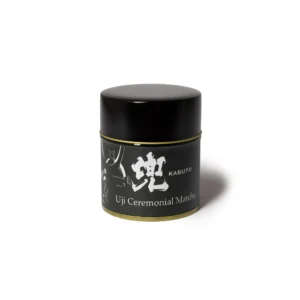 KABUTO Uji Ceremonial Matcha - 30g Tin
1 × $14.23
KABUTO Uji Ceremonial Matcha - 30g Tin
1 × $14.23 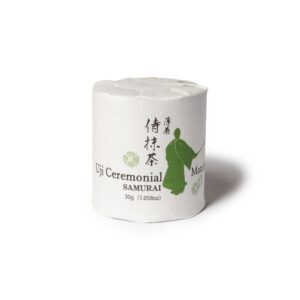 SAMURAI Uji Ceremonial Matcha - 30g Tin
1 × $12.33
SAMURAI Uji Ceremonial Matcha - 30g Tin
1 × $12.33 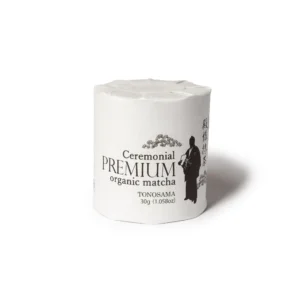 TONOSAMA Ceremonial PREMIUM Organic Matcha - 30g Tin
1 × $18.34
TONOSAMA Ceremonial PREMIUM Organic Matcha - 30g Tin
1 × $18.34 